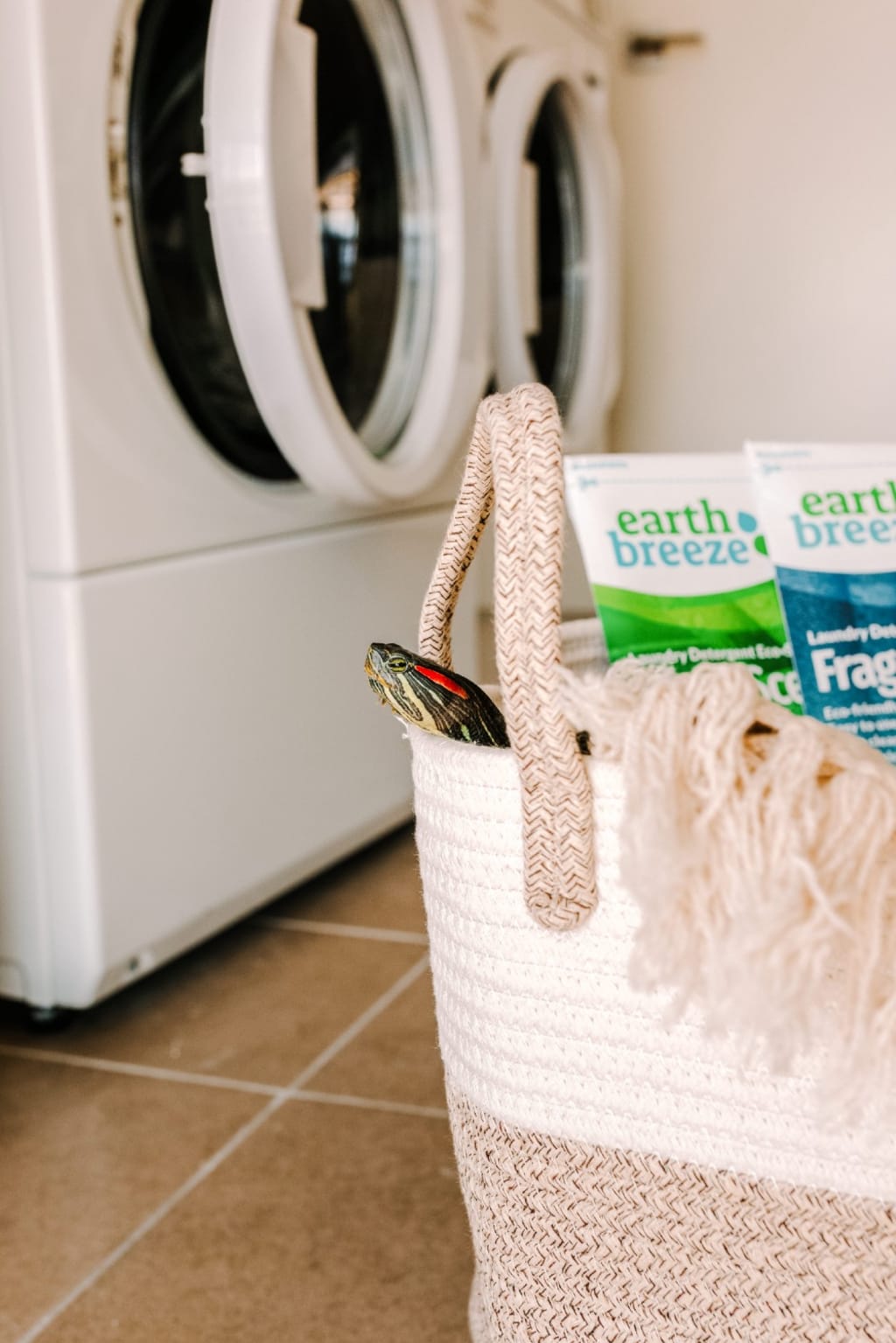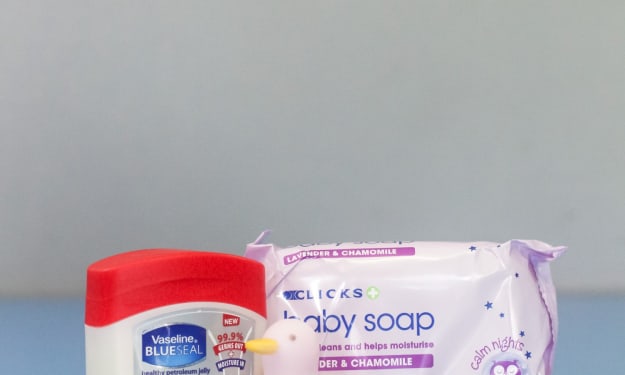Dryer Sheets Are Dangerous - Here Are 7 Natural Alternatives to Use Instead
You can get your clothes soft without toxins

If you use dryer sheets when doing your laundry, you may want to think about using some alternatives. Dryer sheets can be dangerous to you, your family, and the environment.
Dryer vents are a source of air pollution both inside and outside your house. Scented laundry products contribute to this pollution, especially strongly scented products like fabric softener and dryer sheets. Dryer sheets are the biggest contributor to the problem, since they are added to the dryer.
This probably isn’t surprising. We have all had that experience of being outside and smelling the distinctive scent of perfumed dryer fumes from a neighboring house.
Dryer sheets are particularly problematic. They are increasingly considered to be toxic and possibly carcinogenic. In addition to being a pollutant, they can also cause breathing issues, headaches, and allergies.
Additionally, dryer sheets can actually make clothes more flammable, less absorbent of water, and harder to dry, which will increase the costs of running your dryer.
Here’s what you need to know about dryer sheets, as well as some alternatives to help soften your clothes and reduce static cling.
How we came to use dryer sheets
The dryer sheet was invented in the late 1960s by a chemist named Conrad Geiser who wanted to help his wife. The chemist, who had worked for many years in detergent companies, noticed that it was frustrating for his wife to run back and forth to the washing machine. At the time she was using fabric softener, which needs to go in with the rinse, not the detergent phase.
Geiser realized that if you added fabric softener to an absorbent fabric like wool, you could put the fabric into the dryer and the fabric softener would work its magic in the dryer instead of the washer.
Word got out about the invention, and Geiser sold his patent to Proctor & Gamble, who refined it and released it as Bounce fabric sheets in 1975. Over the last forty years these laundry aids have gone from a rarity to a commonly used item in households across the country.
What’s wrong with dryer sheets?
Simply speaking, laundry sheets are toxic. They are full of harmful chemicals. The scent of the sheets, the soft surface, and the efficacy of dryer sheets all come from chemicals.
Chemicals added to dryer sheets are released at high temperatures, attaching themselves to your clothing fibers, the inside of your dryer and releasing through your dryer vent into the environment.
These chemicals that attach to your clothes are what softens the fibers and deodorizes the fabric.
While the Food and Drug Administration (FDA) recognizes the contents of dryer sheets to be “generally recognized as safe” (GRAS) many other health experts have expressed concern about these ubiquitous laundry aids.
According to the website Sixwise.com and other sources, dryer sheets can contain a host of dangerous chemicals, including:
- Benzyl acetate: a carcinogen
- Chloroform: a carcinogen and neurotoxin
- Benzyl alcohol: irritates the respiratory tract
- Ethanol: causes nervous system disorders
- Limonene: a carcinogen
- A-Terpineol: causes respiratory and nervous system damage
- Linalool: causes nervous system disorders
- Ethyl Acetate: classified as a Hazardous Waste by the Environmental Protection Agency (EPA)
- Camphor: causes nervous system disorders
- Pentane: dangerous to the respiratory system
The strong scents in these products are a big concern. Exposure to strong scents can cause a host of physical effects including asthma, skin irritation, migraines, lung irritation, and allergies.
Alternatives to toxic dryer sheets
There are many alternatives to dryer sheets that you can use with similar results. First, ask yourself what your goal in using dryer sheets actually is.
Do you use them because you think you are “supposed” to? If so, try running some load with no dryer sheets and see how you like the results. Chances are other, other than the lack of strong scent, you won’t notice the difference.
If prefer to use something to deodorize your clothes, reduce static cling or soften your fabrics, check out the options below. You may find that these other ideas work just as well, if not better, than your usual dryer sheets.
Reusable dryer sheets: Natural product stores, Amazon, and other retailers now offer reusable dryer sheets that are non-toxic, hypoallergenic, and fragrance-free. Be sure to look for these three words to get the safest alternative for your laundry.
DIY dryer sheets: You can make your own dryer sheets, customized to your preferred scent, using old rags you have laying around. To make dryer sheets, cut up rags into squares and place them in a large jar filled with vinegar and a few drops of essential oils. Seal the jar with a lid. Next time you run the dryer, take one of the rags, wring it out, and put in the dryer with your wet clothes.
Reusable dryer balls: There are a lot of non-toxic reusable dryer ball options online or in stores that you can try. The plastic balls help with decreasing drying time as well as softening clothes and eliminating static. Felt dryer balls help with static and also help remove lint from clothing.
White vinegar: You can add a cup of white vinegar into the washing machine along with your detergent, or soak a washcloth in vinegar, ring it out, then add to the dryer. This will help with softening fabrics and removing odor.
Baking soda: Baking soda works similarly to vinegar. Add a quarter to a half a cup to the washing machine as it’s filling up and give it a chance to dissolved before adding clothes to the basket.
Aluminum foil: If your main concern is static, take a good-sized sheet of aluminum foil, roll it into a ball (baseball size is good) and add to the dryer. You can usually use one tin foil ball for several loads. When you see the aluminum starting to break down, replace it with a new one.
Air Drying: Air drying will make your clothes last longer and can help eliminate odors. If you’ve got a good place outside put up a clothesline, pick up some clothespins, and check it out. This method will work best if you have a dry sunny day that will encourage the clothes to dry quickly.
It’s a good idea for all of us to reduce or eliminate as many chemicals from our lives as possible. Make a commitment to look for alternative ways to treat your laundry. You will save money, help the environment and most importantly, protect your health.
This article was originally posted on another site.
About the Creator
Rose Bak
Rose Bak is a writer, author & yoga teacher who writes on a diverse range of topics. She is also a published author of romantic fiction. Visit Rose's website at rosebakenterprises.com or follow her on social media @AuthorRoseBak.







Comments
There are no comments for this story
Be the first to respond and start the conversation.